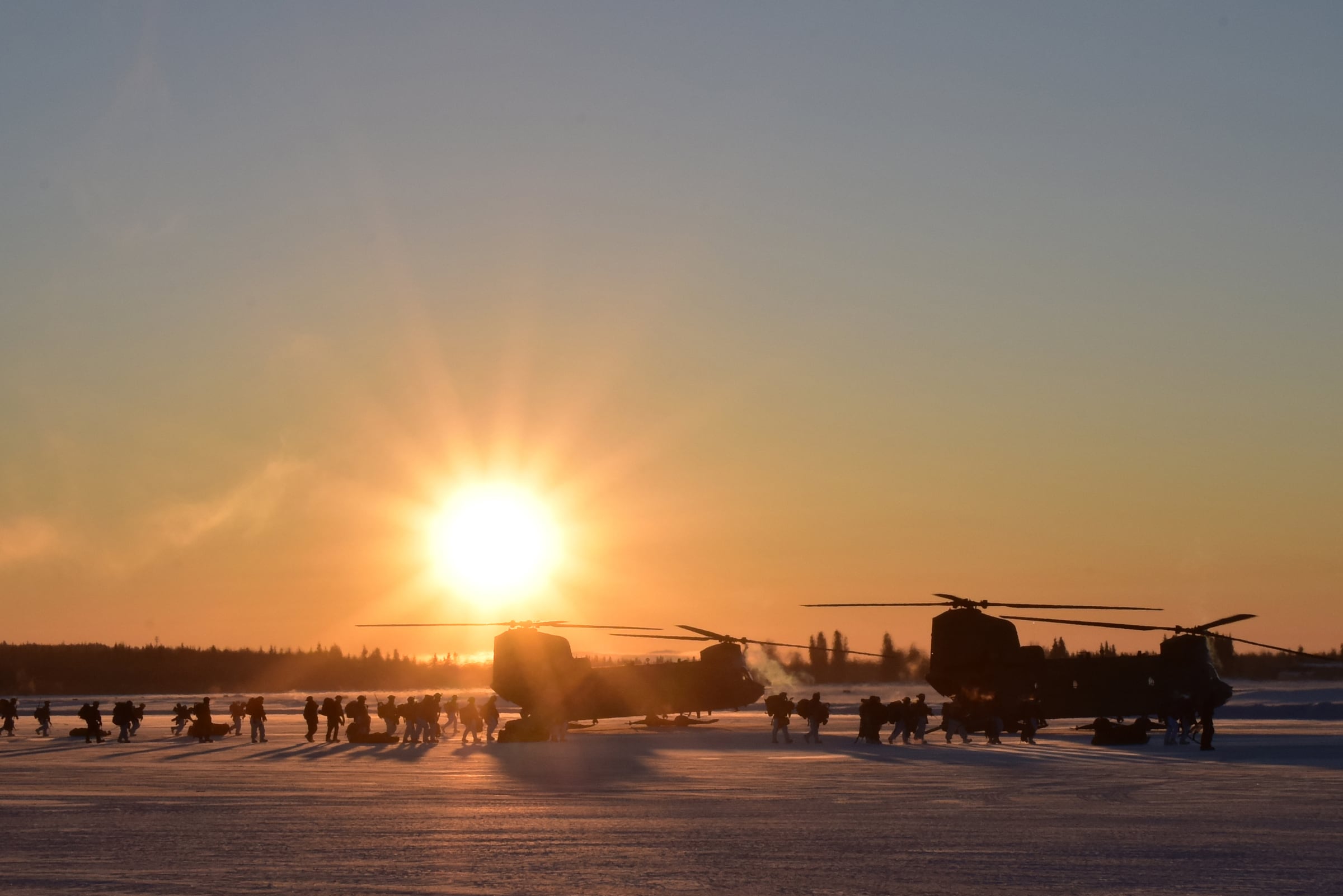WASHINGTON — The U.S. Army is dealing with excessive rotor blade vibrations in its latest variant of the Boeing-manufactured Chinook cargo helicopter as it heads into a limited-user test during the first half of the calendar year, according to a report by the Pentagon’s chief weapons tester.
The new Advanced Chinook Rotor Blade, or ACRB, on the CH-47F Block II aircraft “produces excessive vibrations in ground, hover, and forward flight that may cause a safety of flight risk,” the report stated. “Aircrews reported prolonged fatigue and other physiological conditions due to excessive vibrations following a developmental test flight using the redesigned ACRB’s.”
The director of operational test and evaluation wrote that the relevant program office examined the issue and determined the potential effect on the program’s limited-user test set for the third quarter of fiscal 2021.
Block II improvements include newly designed rotor blades, major changes to the drive system and other improvements like non-segmented fuel cells. The aircraft is expected to buy back roughly 4,000 pounds of additional load capacity and add range capability.
Nearly two weeks after Defense News sent questions to the Army’s program office about the report, a spokesperson said the Army is unable to respond. As a condition for recently interviewing Army aviation leadership, Defense News was told not to ask specific questions related to the report during that discussion.
According to other sources, the limited-user test is still on schedule, but it seems impossible the Army will be able to make a production decision on the aircraft in April 2021, as the report indicated. The program’s live-fire training test and evaluation program is behind schedule, but it is unclear how behind based on the report.
“Design changes needed to correct performance deficiencies, parts availability, and the availability of a specialized test facility will delay multiple live fire test events until after Milestone C,” the report stated.
Delaying live-fire testing until after Milestone C increases program risk, the report explained.
The coronavirus pandemic also affected the program. Boeing had to shut down its Ridley Park, Pennsylvania, production line for several weeks at the outset.
RELATED

The Army decided before the Block II even made it to flight testing that it would only purchase the variant for special operators and not the active force in order to invest more energy and dollars into procuring two future vertical lift aircraft in the 2030s. Congress has since pushed back and provided funding in both its FY20 and FY21 spending bills to prime the pump for Boeing to supply the Army with CH-47F Block IIs for the service.
As of the Pentagon report’s mid-January publication, the CH-47F Block II had completed a total of 387 developmental flight-test hours in FY20 and more time in the Systems Integration Laboratory for software testing and further time in a ground test vehicle for dynamic testing of components.
Aside from the excessive vibrations, the ACRB design, the report stated, met increased power requirements during in and out of ground effect hover testing and demonstrated a 2,300-pound lift increase at 95 degrees at 4,000-foot pressure altitude.
The Army plans to test ACRB segments under representative loads in March 2021 and then will develop dynamic blade testing on the ground test vehicle this fiscal year based on the results from segment testing, according to the report.
Additionally, the aircraft failed fuel cell qualification testing when it did not self-seal after ballistic testing. The report said the contractor must redesign and manufacture a new fuel cell prior to future live-fire evaluations.
The ground test vehicle also ended up with structural damage during dynamic drive train testing, the report noted, and if it can’t be fixed, it could limit the extent of ACRB dynamic ballistic testing. The ACRB testing will remain incomplete until after a production decision is made.
Jen Judson is an award-winning journalist covering land warfare for Defense News. She has also worked for Politico and Inside Defense. She holds a Master of Science degree in journalism from Boston University and a Bachelor of Arts degree from Kenyon College.








